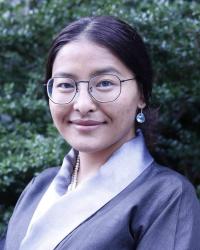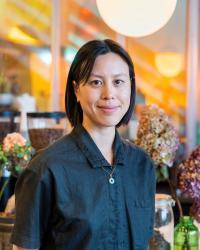About the 2024-2025 CLIP Fellows

Kunsang Choden explores infrastructure development, precarity, and intergenerational experiences with digital technology in the remote Himalayan communities of Nubri Valley. Native to Nubri Valley, an Indigenous Himalayan community in northwestern Nepal, Kunsang’s work focuses on remote-rural information technology, the Himalayan Buddhist worldview, and infrastructure precarity. By implementing a blend of participatory and ethnographic methods, her work seeks to understand how the introduction of broadband, migration, and community development shape and sustain the socio-cultural, ecological, and economic fabric of communities in the Nubri Valley, and how ICTs can be tailored to incorporate community-specific cultural and spiritual values. Currently, Kunsang contributes to NSF research with an interdisciplinary team of researchers to understand infrastructure precarity and technology use among BIPOC and homeless populations in Seattle and Tacoma. Kunsang is a doctoral candidate at the University of Washington's Information School.

Sarah Nguyễn investigates information infrastructures and information disorder among immigrant diaspora and multilingual communities. They center archival, ethnographic, and community participatory methodologies to apply theory into praxis at the intersections of critical information infrastructures, information disorder, embodied memories, Asian American studies, and immigrant/refugee studies. Currently, Sarah contributes to the UW Center for an Informed Public’ NSF Research about problematic information within Vietnamese and Latine diasporas, and to the AfterLab on community archives. Her research has been featured in Harvard Kennedy School Misinformation Review, VICE, BuzzFeed News, KUOW Public Radio, NPR, and John Oliver’s Last Week Tonight. Sarah is a doctoral candidate at the University of Washington's Information School.